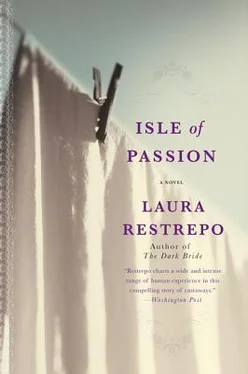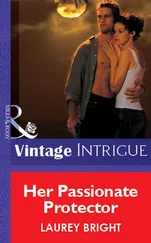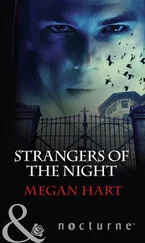On their outbound voyage, the China Fleet carried damask, woven fabrics, muslin, stockings, and Spanish shawls, dishes of fine Ching dynasty porcelain, tea, cinnamon, clover, pepper, nutmeg, saffron, lacquer, and folding screens. On the return voyage — when the ocean currents brought the ships closer to the isle — they carried gold bars and silver and gold ornaments as well as coffee, cacao and vanilla beans, sugar, cochineal, tobacco, aniline blue, sisal, flannel, and straw hats. Sometimes there were kidnappable passengers — high officials, friars, noble ladies, military officers — whose ransom could be a negotiated from Turtle Island.
To attack a Chinese nao was a dangerous adventure. For protection against corsair raids, each fleet was composed of four ships — two galleons and two tenders — all with dual capabilities as freighters or warships, armed to the teeth, including an assigned artilleryman for each copper cannon and an arsenal for the crew. To board such ships was an endeavor for suicides. Or for experts, like Captain John Clipperton.
Holed up in his lookout, chewing American tobacco and hawking up bitter spittle, Clipperton would wait tensely for days and nights. When he smelled the right moment — it was said he could whiff the air and detect the presence of precious metals several leagues away — he rushed to intercept the convoy and board the ships.
His island always welcomed him on his return from an assault, and he sometimes sought refuge on its black sand beaches, overwhelmed and physically wounded, his ship badly battered and his crew decimated. At other times, his return was accompanied by howls of victory, with the Five Ports lumbering in, overburdened by the weight of his booty. Once the cargo was unloaded, the orgy of apportioning the treasure floated down rivers of alcohol. Meticulously fair in this, Clipperton distributed the gold pieces equally among all his men, himself included, and reserved as the captain’s due only the best piece of gold jewelry in the lot. He used to favor heavy Baroque chalices encrusted with precious stones. More than for their value, he chose them to enhance his pleasure as he committed the sacrilege of using them to drink his favorite mixture of coconut milk and rum from the Antilles.
Over their tatters eaten away by the surf and salt spray that also roughened their skins, these sea wolves from Clipperton donned the silk blousons and the damask jackets they had peeled off their victims. They wore too many periwigs and too much perfume, too much jewelry and lace, and thus bedecked, resembling Easter Sunday altars, they started their celebrations.
Only rarely did they bring women from the continent, kidnapped from prisons, orphanages, or brothels. These were mostly beastly whores, covered with lice, who ministered to them without any tenderness, but after all the frolicking was over — by dawn the next day they had mellowed with homesickness — they gave off a tepid maternal warmth that lulled and consoled the men.
Most often the feasts were for men only. They played a pistol game, first covering all windows and sealing any cracks in a room to create total darkness. A man would then sit in the center of the floor and place two pistols in front of him. The others would trample one another blindly, seeking a space to crouch in a protected corner. Someone gave the signal and the man in the middle took the pistols, crossed his arms, and shot. Not until the next light of day did they find out who had died.
Enough victuals were laid out, and the men gobbled up pork, fowl, turtle. They drank until they burst, and in the nebulae of their savage, childish bouts with alcohol, they threw food and poured wine on one another, laughed, pulled each other’s ears, pinched and pricked with their daggers, vomited, sobbed, fell into pools of their own urine and slept there. The next day, Clipperton Island would see them wake up battered and foul-smelling, their throats dry, and walk around on the beaches, overcome by the lasting melancholy that usually follows such brutal excesses of merriment.
Of all the loot they had hauled, there is now only the memory. Of all the gold that John Clipperton and his pirates took to their island hideout, nothing remains. Nobody left buried treasure, because to save money and increase one’s fortune is of no concern to men who are amazed each day to find themselves alive.
None of them was patient enough or eager enough to accumulate wealth, least of all John Clipperton, a show-off, gambler, and spendthrift who prided himself on having wasted, coin by coin and without any regrets, an immense fortune.
The inhabitants of Tortuga would attest to that, since one morning they saw him land his Five Ports loaded with gold ingots, hostages, and sacks of goods; they saw him negotiate everything that same day for fabulous sums of money; they saw him that evening strutting in the local taverns and bawdy houses, where he threw money away right and left, boasted of being a cardsharp, and bragged about money spent on reveling and on alms. And at dawn they saw him lying in a dark corner, in a happy drunken stupor, while a badly mutilated beggar removed from his purse the last few coins, final vestiges of his prodigious loot.

THAT CHRISTMAS WAS a silent one in Clipperton. After dusk on New Year’s Eve, torrents seemed to break the sky open, and when the waters fell on the isle, the people, already taciturn, went early to bed and covered their heads in order to keep from being blinded by the glare of the relentless lightning flashes. At the Arnauds’ home the usual Friday guests had gathered, feasting on the delicacies and spirits Brander had sent them. But the midnight toasts were laconic and the embraces tearful: the ship that was not coming and the feeling of abandonment weighed too heavily on their souls.
The true celebration was on the second day of January, the day El Demócrata finally arrived with supplies, relief personnel, bags of topsoil for their green garden, letters from relatives, and news from Mexico. The forty-four adults and children who at that moment were the entire Clipperton population joined the captain, nineteen sailors, and six passengers of El Demócrata to eat, dance, and drink all night, gathered in an empty guano storehouse.
Ramón, eager to have news from Mexico, pulled aside the ship’s captain, Diógenes Mayorga, and the man reeled off a long string of bureaucratic excuses for his delay in arriving at the isle. Then his expression acquired a pained, sad look.
“Things in the country are turning ugly,” he said.
He told how Don Porfirio Díaz — eighty years old and thirty years in power — was getting ready for his sixth reelection, and how his enemies were suddenly coming forth out of nowhere. They called themselves “anti-reelectionists” and the name of their leader was Madero. Francisco Madero.
“This Madero is a short man with a goatee, the heir of one of the five largest fortunes in the country. The Porfirio followers call him “the loony man” because he is devoted to spiritualism and astrology. He believes himself to be a medium and speaks with spirits. What I am telling you is that he might be crazy, but he is still dangerous, because he has the Indians all excited with the slogan that we have had enough of Porfirio and his tyranny.”
“And he talks to spirits?” asked Ramón in disbelief, his eyes round and wide open.
“That’s what they say, Governor. That he communicates daily with his kid brother, Raúl is his name, a little angel that burned himself to death with a kerosene lamp. People who know say that little Raúl’s spirit has possessed his brother Francisco and that he dictates what Francisco is to do; that in spite of being an innocent soul, he knows a lot about politics; and that because he died with so much suffering, he must have become a visionary in his other life. They say that Madero does exactly whatever his dear brother’s spirit demands. And what do you think he’s asking for? Well, he wants his brother to give up drinking and smoking, to distribute his fortune among the poor, to cure the sick, to observe carnal abstinence. .. And Francisco Madero is doing all that.”
Читать дальше













